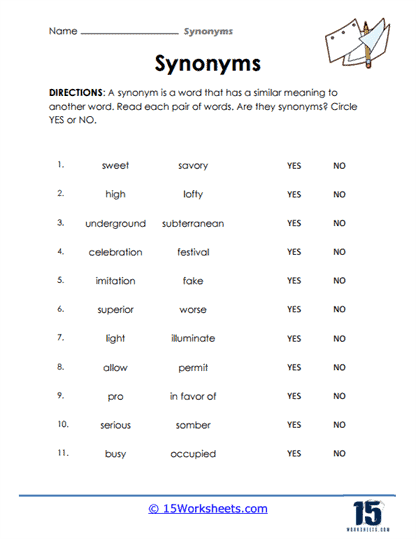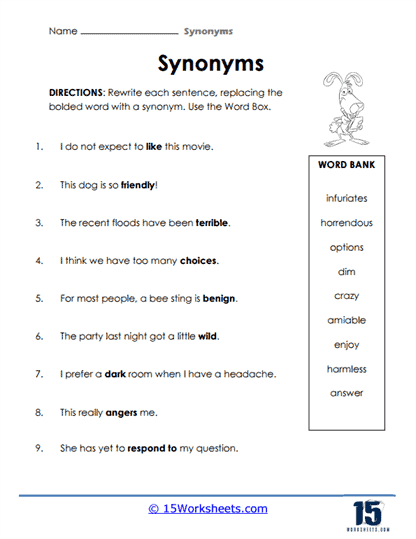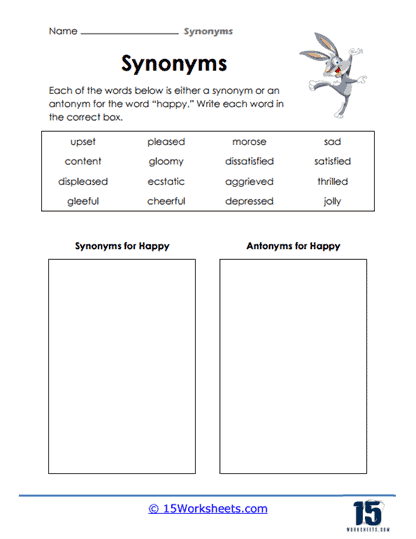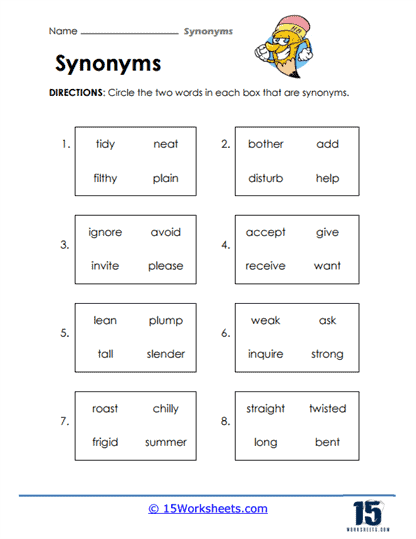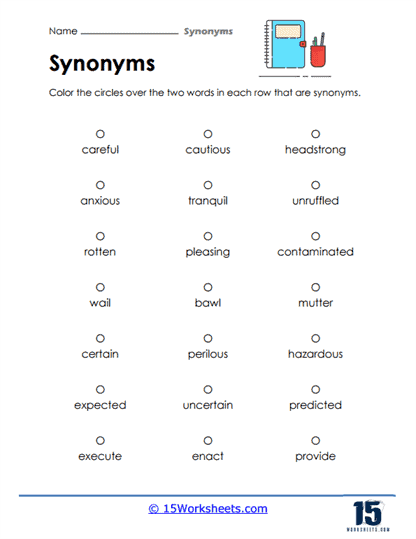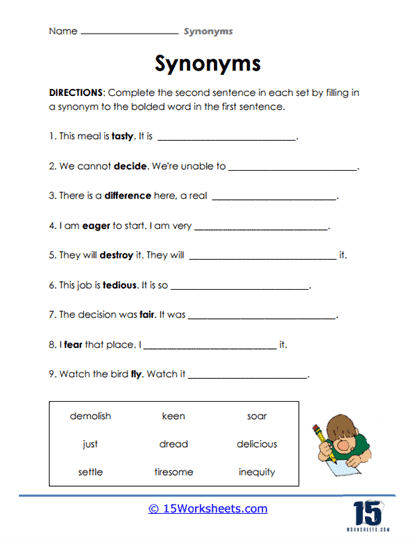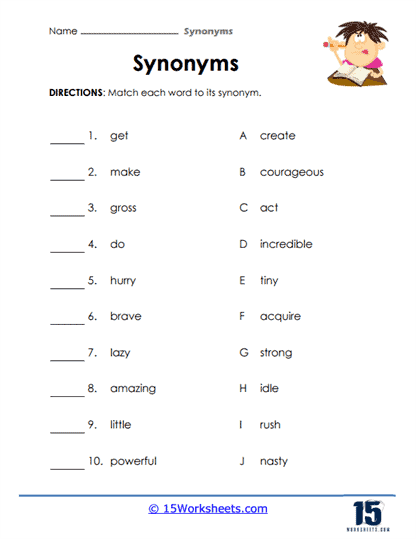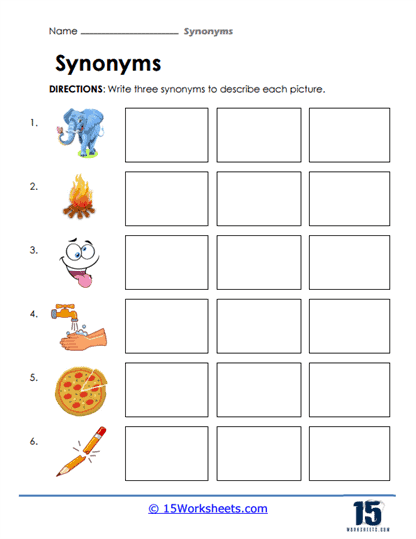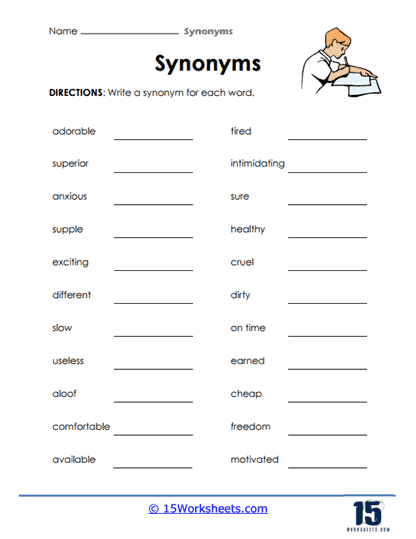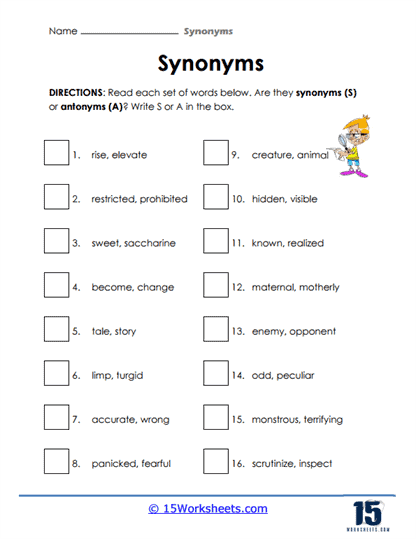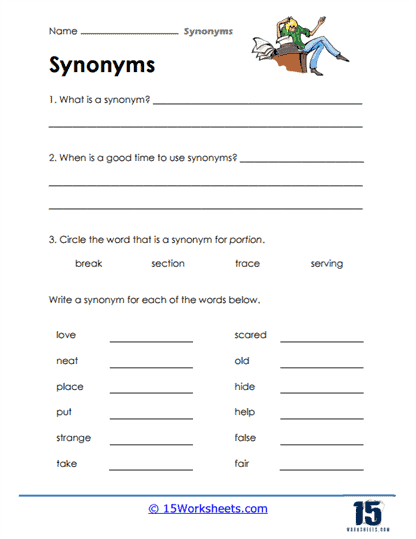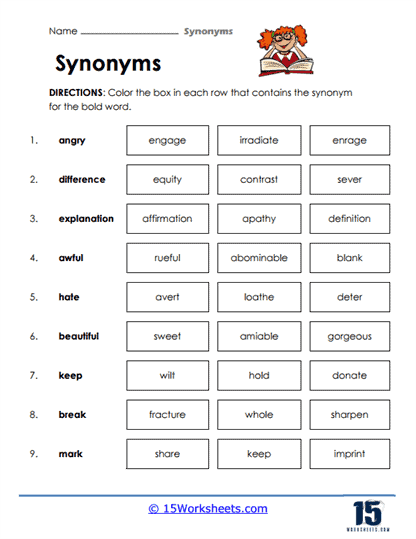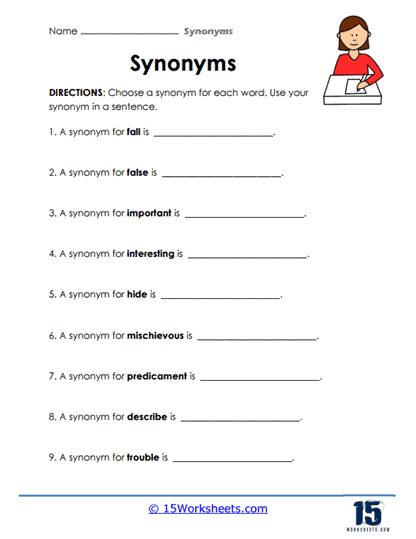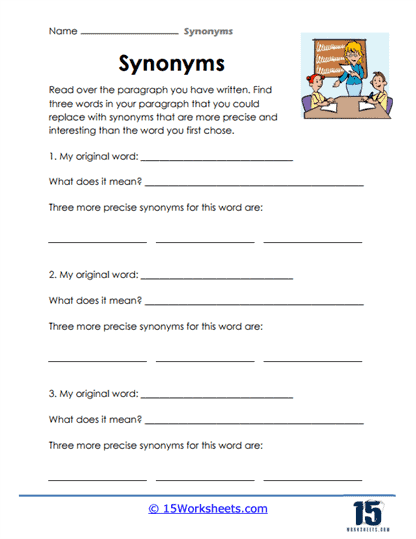Synonyms Worksheets
All About These 15 Worksheets
This series of 15 worksheets on synonyms offers an engaging and comprehensive learning experience for students to expand their vocabulary, improve their language skills, and enhance their understanding of word relationships.
Through a variety of activities and exercises, students will develop their ability to identify synonyms, strengthen their vocabulary retention, and refine their language expression. The exercises in these worksheets promote critical thinking, word analysis, and effective communication. By completing them, students will:
- Identify whether pairs of words are synonyms or antonyms of each other;
- Rewrite sentences by transforming words into synonyms;
- Classify a group of words into whether they are synonyms or antonyms of a specific word;
- Match words to their synonyms;
- Come up with their own synonyms to describe pictures;
- Write the synonyms of various words;
- Annd answer writing prompts to showcase their familiarity and comprehension of what synonyms are, how they function, and when they are used in sentences.
This series of worksheets on synonyms empowers students to expand their vocabulary, improve language proficiency, and refine their communication skills. By exploring word relationships, engaging in analogy exercises, and practicing contextual usage, students enhance critical thinking, word analysis, and effective language expression. Overall, these worksheets foster an appreciation for the richness of language, promote creativity in writing, and empower students to become more articulate communicators.
What Are Synonyms?
Synonyms are words or phrases that have similar or nearly identical meanings, allowing them to be used interchangeably in certain contexts. They may differ in terms of register, connotation, or nuance, but they generally convey the same basic idea. Examples of synonyms include “happy” and “joyful,” “begin” and “commence,” or “quick” and “swift.”
Synonyms are helpful for several reasons:
Enhancing Vocabulary
Learning and recognizing synonyms can help expand your vocabulary and improve your overall language skills. Familiarity with synonyms allows you to choose the most appropriate word for a specific context or audience, making your communication more precise and effective.
Enriching Writing
Synonyms can be used to add variety and richness to your writing, helping you avoid repetition and maintain the reader’s interest. By using synonyms, you can convey the same idea in different ways, adding nuance and depth to your text.
Improving Reading Comprehension
Understanding synonyms can enhance your reading comprehension, as you can recognize when different words convey the same meaning. This skill enables you to grasp the intended message more easily and accurately, even when unfamiliar words are used.
Encouraging Language Flexibility
Synonyms promote flexibility in language use, as they allow you to adapt your speech or writing to different contexts, registers, or styles. This adaptability is essential for effective communication in various situations, from informal conversations to academic papers or professional presentations.
Strengthening Language Learning
When learning a new language, knowing synonyms can help you build a more extensive vocabulary and better understand the nuances of the language. It also enables you to express yourself more precisely and creatively in the target language.
In summary, synonyms are words or phrases with similar meanings that can be used interchangeably in certain contexts. They are helpful for enhancing vocabulary, enriching writing, improving reading comprehension, encouraging language flexibility, and strengthening language learning. By understanding and using synonyms, you can communicate more effectively, precisely, and creatively.

